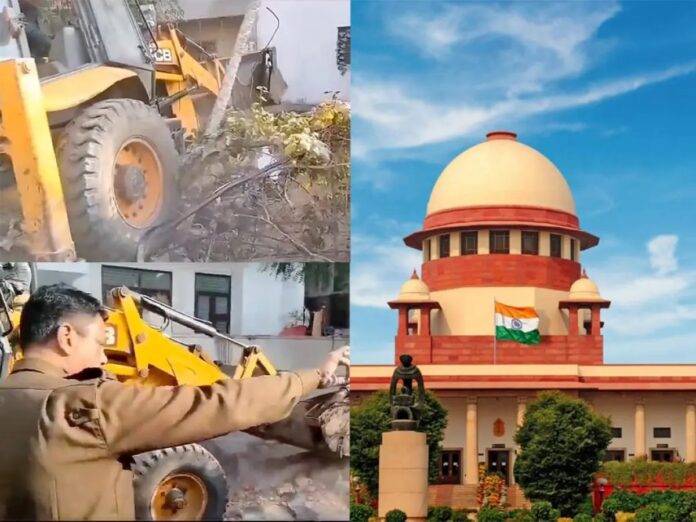The Supreme Court of India has strongly criticized the Uttar Pradesh authorities for their “high-handed” approach in demolishing a house without proper notice, ordering them to pay Rs 25 lakh in compensation to the affected homeowner. The case, taken up as a suo motu writ petition, was presided over by Chief Justice of India (CJI) D Y Chandrachud and Justices J B Pardiwala and Manoj Misra.
The petition, filed by Maharajganj resident Manoj Tibrewal Aakash, came to the Supreme Court’s attention in 2020, following the demolition of his house in 2019 for a road widening project. The court questioned the state’s failure to provide any formal notice before undertaking the demolition, emphasizing the lack of due process and fairness.
“This is completely high-handed. Where is the due process followed? We have the affidavit that says no notice was issued. You only went to the site and informed the people through a loudspeaker,” said CJI Chandrachud, expressing his disapproval. The authorities argued that Aakash had encroached on 3.7 square meters of public land, but the court was firm in its stance against the manner of the demolition. “We are not giving him a certificate for it. But how can you start demolishing people’s houses like that?” questioned the CJI, terming the action as “lawlessness.”

Justice Pardiwala echoed these sentiments, stating that bulldozing houses without notice or giving residents time to vacate is unacceptable. He highlighted the distress caused to families, who were not given sufficient time to remove their belongings. “You can’t come with bulldozers and demolish houses overnight. You don’t give time to families to vacate. What about the household articles? There has to be due process followed,” he remarked.
The bench expressed particular concern over the fact that residents were informed of the demolition only through a public announcement using a loudspeaker. “You can’t tell people just with a beat of a drum to vacate houses and demolish them. There has to be proper notice,” Justice Pardiwala asserted, underlining the importance of legal procedures and basic human decency.
In addition to ordering Rs 25 lakh in compensation for Aakash, the Supreme Court directed the Uttar Pradesh chief secretary to conduct an inquiry against the officers and contractors responsible for the demolition. The court has also called for disciplinary action against those found guilty, emphasizing accountability for the wrongful act.
This ruling by the Supreme Court sends a strong message to authorities regarding the importance of following legal processes before taking action that affects people’s homes and livelihoods. The judgment underscores the need for transparency and due process in government actions, particularly when they impact citizens directly. A democratic country like India cannot work by enacting a bulldozer justice system, and politicians implementing this must stop immediately.

